With the upcoming release of the film 'Hong Ha Nu Si' (about the life of Doan Thi Diem), and the ongoing production of the film 'Chien Bao' (about the hero Le Loi), and the controversial historical incident with the film 'Dat Rung Phuong Nam', it can be seen that: it is time for the Vietnamese historical film genre to be recognized with a more comprehensive vision.
Southern Forest Land is, after all, just a fictional film, inspired by a literary work of the same name, which is also fictional. Of course, the historical context of the land in the film story is still something to discuss, for the general audience who want to learn more and especially for professionals.
But perhaps any related comments should only look directly at the "text" of the existing film version, rather than being absorbed in using a literary reference system to "read" a film, including whether the film is historically accurate or not.
Refer to some perspectives of international filmmakers
For example, the 1996 film Romeo + Juliet , starring Leonardo DiCaprio and directed (and co-produced and co-written) by Australian Baz Luhrmann, is a modern adaptation of the tragedy of the same name by the great writer William Shakespeare (1564 - 1616), which has caused quite a bit of controversy among audiences and international critics. This is also the third major film adaptation of this classic play, after the 1936 and 1968 adaptations. Although it retains Shakespeare's original dialogue, the film depicts the families in the film as warring mafia empires, in a contemporary American context, where swords (in the original work) are replaced by guns! That is, the original setting has been shifted from medieval Italy to modern America, when the classic characters are present on the film. The names of some characters were also changed, or characters were removed, or some characters were even transferred to opposite families by the filmmakers, compared to the original play by writer William Shakespeare (written around 1594 - 1595).
Film review site Rotten Tomatoes reports that 73% of 66 critics gave Romeo + Juliet a positive review, with an average rating of 6.8/10. The site's critics consensus also states: "Director Baz Luhrmann's visual aesthetic is as divisive as it is innovative and boundlessly inventive."
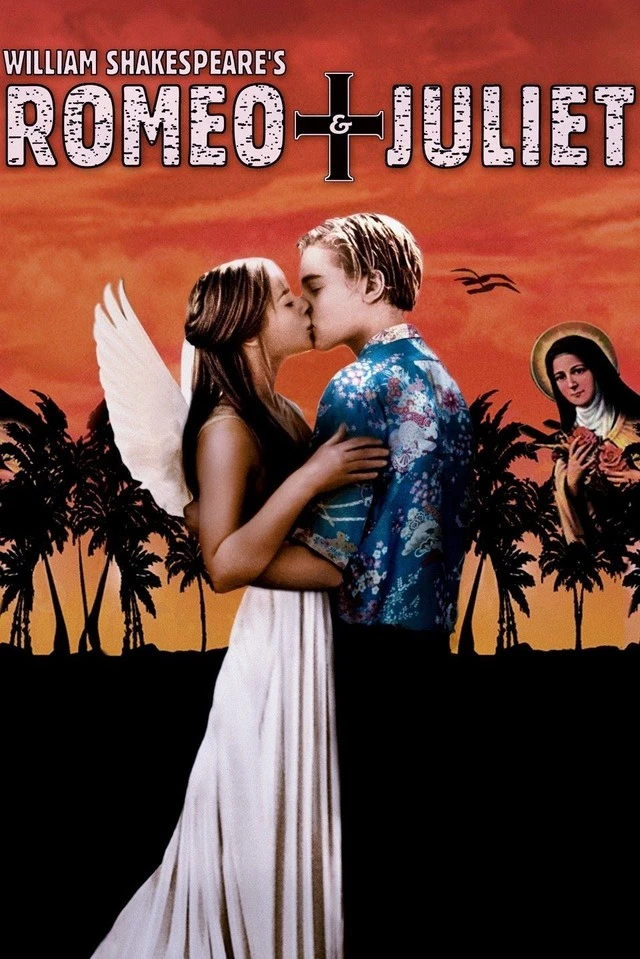
Romeo + Juliet 1996 movie
TL
Romeo + Juliet film director Baz Luhrmann (born 1962) is a professional whose projects span the film, television, opera, theatre, music and recording industries. He is regarded by international critics as an auteur filmmaker. The term "Auteur" means an authorial film in which the artist has a distinctive approach, a filmmaker who has the ability to control the filmmaking without constraints and personal character, to the point that the director is considered the "author" of the film, even if the film is adapted from another original format that is considered classic.
Romeo + Juliet competed for the Golden Bear at the 1997 Berlin International Film Festival, and was also nominated for the Best Art Direction Oscar at the 1997 Academy Awards. Interestingly, the film made a strong impression and has maintained a popular reputation among English teachers worldwide, as a contemporary means of introducing the classic play to secondary school students. Although it may not have been to everyone's taste, Romeo + Juliet is now recognized as one of the most influential Shakespearean adaptations ever made.
Another case is the film Curse of the Golden Flower ( Golden Flower ) by director Zhang Yimou, released in 2006, with the participation of famous Chinese stars such as Chow Yun Fat, Gong Li, Jay Chou, Liu Ye... The film is considered to have a plot based on the play Thunderstorm (author Cao Yu, written in 1934), and was also inspired by the classic play Hamlet (written in 1601) by playwright William Shakespeare. The plot of the play Hamlet originated from the medieval folk tale genre. Thunderstorm has a story set in Tianjin during the Republic of China. In turn, when making the film, director Zhang Yimou moved the setting of the film to the Tang Dynasty in 928.
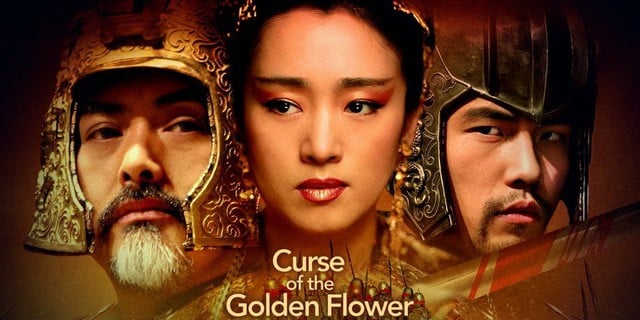
The Golden Flower by Zhang Yimou
TL
Along with moving the film's setting to a completely different time frame from the original stories it was inspired by, and even "using" the timeline of a real dynasty in Chinese history, Zhang Yimou's The Golden Armor also received strong reactions from the public in the country with the costumes of this film. Because the filmmaker made all the women in the imperial court in the film wear extremely bold open-chested yếm, creating a very strong visual impression of sensual beauty. When criticized for unrealistic costumes, the filmmaker spoke up to affirm that the film crew had researched a lot about the extremely liberal cultural history of the Tang Dynasty, especially the vestiges of the Tang Dynasty's costumes, where women in the court were concubines in the palace and still wore shirts with low-cut collars to expose their chests. Just because other Chinese dynasties after the Tang Dynasty did not recreate this low-chested clothing trend does not mean that it never existed in history, as seen by the general audience. Zhang Yimou's film Curse of the Golden Flower received an Oscar nomination in 2007, in the category of Best Costume Design.
Vietnamese historical film: Which life did we love each other?
With films related to Vietnamese history, even if it is just a film that reminisces about a land like Dat rung phuong Nam in the form of a fictional story, or a film about real historical figures, it is certainly difficult to avoid harsh and multi-dimensional judgments from the general audience.
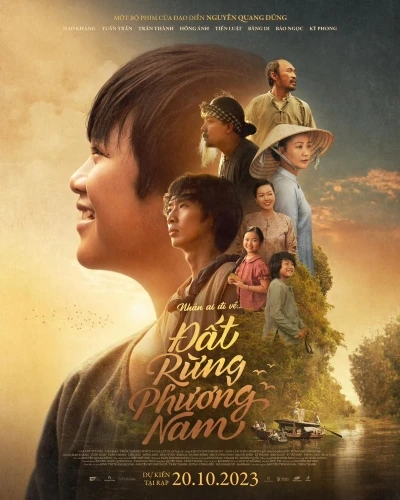
Southern Forest Land Movie Poster
In 2015, the Vietnamese historical film My Nhan (directed by Dinh Thai Thuy) also caused controversy in Vietnam. The core of the film My Nhan is the incestuous story of Tong Thi in the context of the Trinh - Nguyen conflict, from a new perspective on history by screenwriter Van Le. The film was criticized by public opinion for its non-Vietnamese costumes, right from when the filmmakers released the trailer to introduce and promote the film.
By 2020, the film Quynh Hoa Nhat Da (directed by Ly Minh Thang) had just "debuted" with a teaser trailer and was questioned by the online community about many things, but the most prominent was still the costume of the female lead character, Queen Mother Duong Van Nga (played by supermodel and actress Thanh Hang). This is a Vietnamese film project in the direction of historical fiction, not official history, set in the Dinh - Tien Le period.
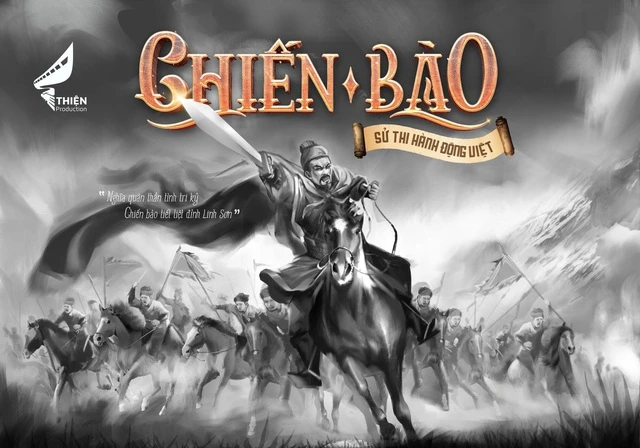
Epic action film War Armor by producer Ba Cuong - Thien Production studio
Manufacturer
Recently, Thien Production studio of producer Ba Cuong (director and producer of the martial arts action film Vo Sinh Dai Chien , released in 2021) has also revealed a Vietnamese historical action epic film project: Chiến Phái. The script was written by the Golden Kite Award-winning screenwriter duo Luong Kim Lien and Nguyen Thi Ngoc Bich. It is known that this historical film project has a story about the hero Le Loi raising the flag of uprising in the Lam Son - Chi Linh (Thanh Hoa ) mountains and forests, resisting the Ming, in the context of the 4th period of Northern domination (also known as the Ming domination period) in Vietnamese history, starting in 1407 when the Ming empire defeated the Ho - Dai Ngu dynasty.
In the winter of 1416, Le Loi and 18 like-minded friends held an "Oath Ceremony" in Lung Nhai (present-day Thuong Xuan district, Thanh Hoa province), held a ceremony to inform heaven and earth, became sworn brothers, and vowed to join forces to fight against the domination of the Ming army. And in 1418, Le Loi officially started an uprising, with an initial force of only a few thousand people. After many fierce battles, even being besieged and cornered by the Ming army many times, finally in 1427, the resistance under the leadership of Le Loi was successful, sweeping the Ming army out of the country's borders, from which Le Loi unified and rebuilt Dai Viet, establishing the Later Le dynasty. Le Loi is highly appreciated by historians for his political , military, and economic talents, and is one of the two saints who restored the Vietnamese nation (the first was Ngo Quyen).
But will a large-scale historical film project like Chiến Bảo continue to encounter negative public opinion, like previous Vietnamese films of the same genre?
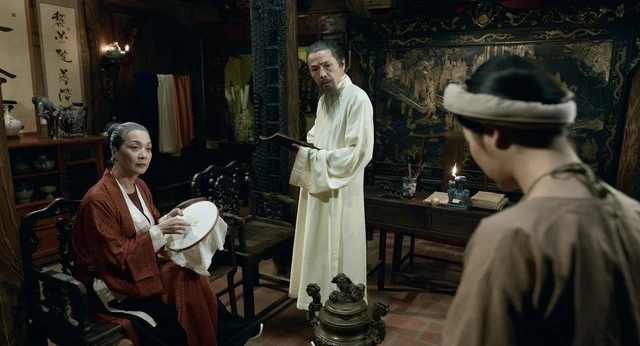
Historical film: Lady Hong Ha
Party Committee
The answer to the future of Vietnamese historical films is certainly still ahead, depending on the actual quality of the films when they are released. With almost the only condition, that Vietnamese audiences should also be more open to the creative range of private filmmakers in the country, especially when Vietnamese cinema up to this point is still very scarce in historical films with investment capital outside the national budget.
Hope Vietnamese historical films will receive more support from the audience
National Assembly delegate Bui Hoai Son, who is also a standing member of the National Assembly's Culture and Education Committee, expressed his opinion at the National Assembly, during a discussion session, that: "We often praise historical films from China, Korea... for being attractive. But I believe that such films, if made in Vietnam, will certainly cause a lot of debate and will find it difficult to escape public opinion. Of course, each culture is different, and the way of making films must be different. In the current context, artistic creations about history need to be viewed in a more 'open' way, listened to in a more positive way, and supported more. Only then will artists dare to sacrifice themselves for art."
Associate Professor Dr. Bui Hoai Son also hopes that the recent debates (related to the film Dat rung phuong Nam ) will not discourage artists who are passionate about exploiting Vietnamese historical themes. He also gave an example of some films commissioned by the State this year such as Dao, pho va piano and Hong Ha nu si, although invested by the State and carefully made by filmmakers, have not really attracted the attention of the public in the domestic film market.
Thanhnien.vn



![[Photo] Journalists moved to tears at the Memorial Service for the soldiers who died in Gac Ma](https://vphoto.vietnam.vn/thumb/1200x675/vietnam/resource/IMAGE/2025/5/30/9454613a55c54c16bf8c0efa51883456)

![[Photo] National Conference "100 years of Vietnamese Revolutionary Press accompanying the glorious cause of the Party and the nation"](https://vphoto.vietnam.vn/thumb/1200x675/vietnam/resource/IMAGE/2025/5/30/1cf6cd5c8a934ebfa347028dcb08358c)
![[Photo] A delegation of 100 journalists from the Vietnam Journalists Association visits the soldiers and people of Truong Sa island district.](https://vphoto.vietnam.vn/thumb/1200x675/vietnam/resource/IMAGE/2025/5/30/0984a986227d4e988177f560d2e1563e)
![[Photo] General Secretary To Lam receives Chief of the Central Office of the Lao People's Revolutionary Party](https://vphoto.vietnam.vn/thumb/1200x675/vietnam/resource/IMAGE/2025/5/30/140435f4b39d4599a3d17975dfb444c5)


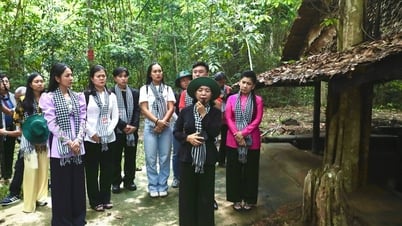


















































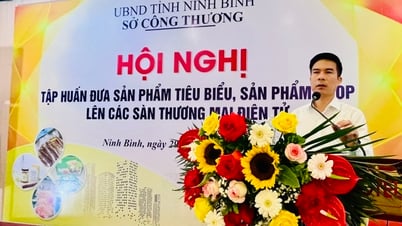




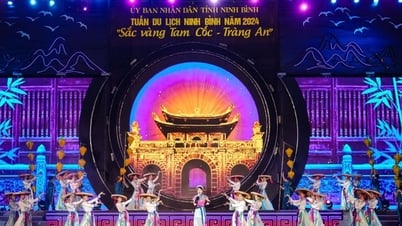
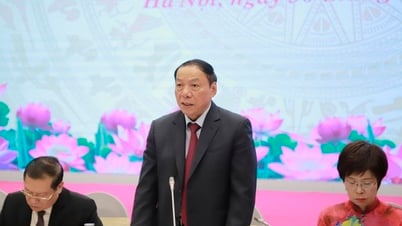











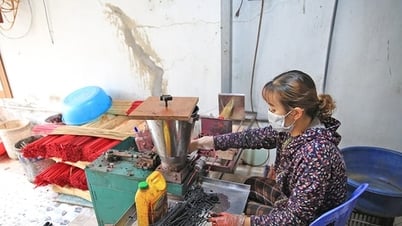












Comment (0)